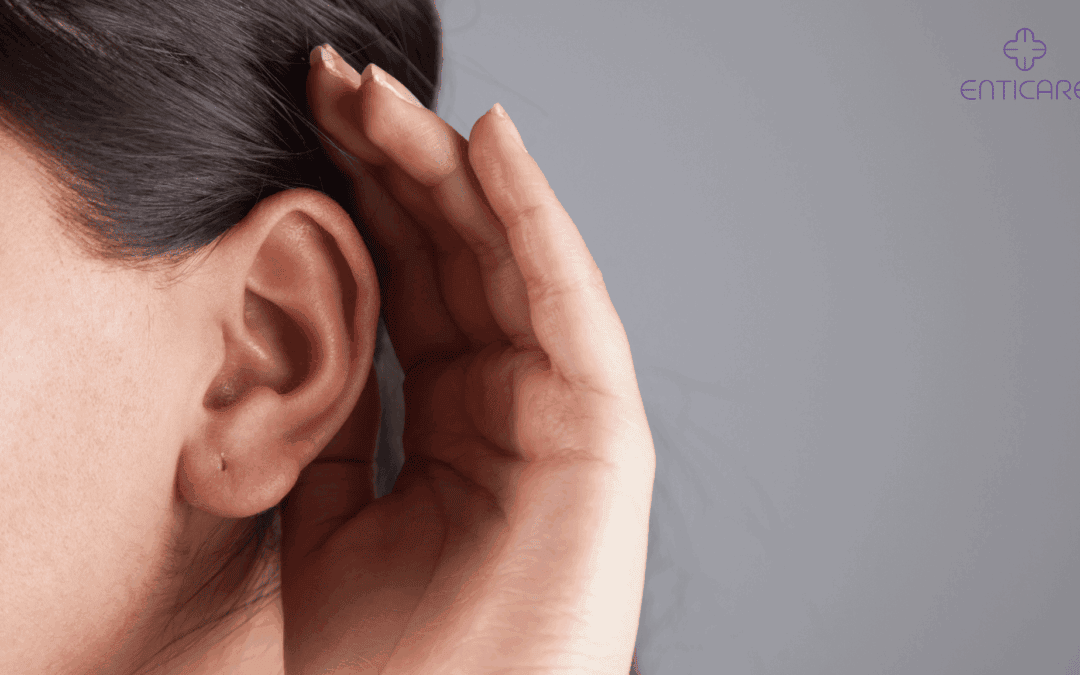Hearing loss can develop gradually or occur suddenly, but understanding when you need a hearing aid is crucial for maintaining your quality of life. A hearing test is essential to determine the level of hearing loss, which is measured in decibel levels, and the need for a hearing aid. Hearing aids offer a solution to many degrees of hearing impairment, but the question remains: what level of hearing loss requires a hearing aid?

Understanding Hearing Loss: The Basics
Before diving into when hearing aids are necessary, it’s important to understand the basics of hearing impairment, how it is measured, and how it can impact daily life. The National Institute on Deafness and Other Communication Disorders (NIDCD) plays a crucial role in researching hearing loss and communication disorders. Understanding hearing loss is essential to prevent other communication disorders related to hearing issues.
How Hearing is Measured
Hearing is measured in decibels (dB), which indicate the intensity of sound. The higher the decibel level, the louder the sound. Normal conversation ranges between 60 to 70 dB, while a whisper might be around 30 dB. Individuals with normal hearing can perceive these sounds clearly, whereas those with hearing loss may struggle. Hearing thresholds are evaluated through an audiometric test, which tests your ability to hear sounds at various pitches and intensities.
Degrees of Hearing Loss
Hearing loss is divided into four main levels based on hearing sensitivity: mild, moderate, severe, and profound. Trouble hearing is a common symptom that varies with the degree of hearing loss. Each level requires different approaches, and the need for a hearing aid typically begins at moderate hearing loss.
Mild Hearing Loss: Is a Hearing Aid Necessary?
Mild hearing loss may not seem like a serious issue, but even small impairments can affect communication and quality of life, especially in noisy environments. Exposure to loud noises can worsen mild hearing loss, as high decibel levels can cause irreversible harm to the delicate hair cells in the inner ear, ultimately affecting overall hearing health.
What is Mild Hearing Loss?
Mild hearing loss is defined as the inability to hear sounds within the hearing range of 25 to 40 dB. People with mild hearing loss may find it difficult to follow conversations in noisy settings or hear faint sounds but can still manage in quiet environments.
Symptoms of Mild Hearing Loss
Individuals with mild hearing loss often struggle to hear high-pitched sounds, like birds chirping or children’s voices. Additionally, they may ask others to repeat themselves frequently or turn up the volume on the television or radio to improve hearing clarity.
When to Consider a Hearing Aid
While hearing aids are not always necessary for mild hearing loss, they can provide significant hearing enhancement, especially in noisy or group settings. Hearing aids can help avoid the fatigue that often accompanies straining to hear and can improve overall communication and quality of life.

Moderate Hearing Loss: A Turning Point for Hearing Aids
Moderate hearing loss represents a more significant challenge, and this is often the stage where people benefit most from using hearing aids for hearing amplification.
What is Moderate Hearing Loss?
Moderate hearing loss occurs when the hearing capacity is limited to sounds below 41 to 70 dB. At this level, it becomes difficult to understand conversations, particularly over the phone or in noisy environments.
Symptoms of Moderate Hearing Loss
People with moderate hearing loss may struggle with day-to-day conversations, need to lip-read or strain to hear, and may miss important details even in one-on-one conversations due to reduced hearing comprehension. In noisy places like restaurants or parties, understanding speech becomes particularly challenging.
Why Hearing Aids Are Recommended
For moderate hearing loss, hearing aids become an essential tool for hearing rehabilitation. They amplify sounds, making it easier to follow conversations and enjoy activities like watching TV, listening to music, or socializing. Without intervention, this level of hearing loss can lead to frustration, isolation, and even depression due to the difficulty in maintaining normal communication.
Severe Hearing Loss: Immediate Intervention Needed
Severe hearing loss severely impacts a person’s ability to function in social and professional settings. At this point, hearing aids or other assistive devices become essential for hearing preservation.
What is Severe Hearing Loss?
Severe hearing loss is categorized by the inability to hear sounds below 71 to 90 dB, significantly affecting hearing acuity. At this stage, most normal conversations are inaudible without amplification.
Symptoms of Severe Hearing Loss
People with severe hearing loss may only hear loud sounds like traffic or a vacuum cleaner without the help of hearing aids, significantly affecting hearing perception. Conversations, especially without visual cues like lip reading, become almost impossible. Those affected may also rely heavily on body language or written communication.
How Hearing Aids Can Help
Hearing aids for severe hearing loss are equipped with advanced technology to amplify sounds significantly, aiding in hearing restoration and making it easier to hear speech and environmental sounds. Hearing aids can help individuals regain a sense of connection to the world around them and prevent the emotional toll that untreated hearing loss can bring.
Profound Hearing Loss: Beyond Hearing Aids
Profound hearing loss is the most extreme form of hearing impairment, and at this level, traditional hearing aids may not always provide sufficient help, necessitating more advanced hearing intervention.
What is Profound Hearing Loss?
Profound hearing loss means that the hearing capacity is limited to sounds below 91 dB. At this stage, even the loudest sounds, such as a plane taking off, may be difficult to hear.
Symptoms of Profound Hearing Loss
Individuals with profound hearing loss struggle to hear even the loudest sounds, significantly affecting hearing perception, and may rely on other forms of communication, such as sign language or lip reading. Without hearing aids or assistive devices, verbal communication becomes almost impossible.
Hearing Aids and Alternatives for Profound Hearing Loss
While hearing aids may help some individuals with profound hearing loss, cochlear implants are often recommended for more effective hearing rehabilitation. Cochlear implants bypass the damaged parts of the ear and send sound signals directly to the auditory nerve, providing a solution for those who cannot benefit from hearing aids alone.

When Should You Consider a Hearing Aid?
Hearing loss, whether mild, moderate, severe, or profound, can significantly impact your quality of life. For many people, hearing aids offer a practical and effective solution to improve communication and restore their ability to engage fully with the world around them. The right time to consider a hearing aid depends on the degree of hearing loss, but moderate hearing loss often marks the point when hearing aids become essential.
If you suspect you are experiencing hearing loss or are unsure about the severity of your condition, the best next step is to seek a professional hearing evaluation. At ENTicare, we offer comprehensive hearing assessments and personalized solutions to help you hear better and live better.

